
Regardless of our status in life, we all have the same amount of time in a day to manage time effectively. How we plan to use it determines our success or failure in achieving our goals. Time management techniques will help you handle projects and tasks within tight deadlines effectively. When you use time efficiently, you will be able to do more things in less time.
“Never put off till tomorrow what may be done the day after tomorrow just as well.”
— American Writer Mark Twain
What Is Time Management?
To better understand the techniques below, it’s essential to know what the term ‘time management’ means. Put simply, “Time Management” refers to the process of organizing and planning the amount of time you have to accomplish specific goals, projects, or tasks.
For effective time management, you have to learn how to allocate the right time to the right activity, but to master time management, you need to consistently practice and refine your strategies to handle various tasks efficiently.
It’s up to you to identify and prioritize tasks according to their urgency and importance and estimate the time it will take to accomplish them. Poor time management usually leads to failure to get things done within the set timeframe. Of course, this can negatively affect your career and personal life.
With that in mind, here are 12 effective time management methods to help put you on the right path to success, promotions, and pay raises.
Understanding the Importance of Time Management
Time management is a crucial skill that enables individuals to prioritize tasks, manage their time effectively, and achieve their goals. Effective time management strategies can help individuals balance their work and personal life, reduce stress, and increase productivity. By mastering time management, individuals can accomplish more in less time, achieve a better work-life balance, and improve their overall well-being.
When you manage your time well, you can properly allocate specific periods for work, personal activities, and relaxation, and be certain that no aspect of your life is neglected. This balance is essential for maintaining mental and physical health, as well as for achieving long-term success in both your career and personal life. Effective time management strategies, such as setting clear priorities, avoiding multitasking, and using productivity tools, can help you stay organized and focused, ultimately leading to a more fulfilling and balanced life.
“Where focus goes, energy flows.”
— Motivational Speaker Tony Robbins
Effective Time Management Techniques
Developing strong time management skills lets you tackle all the tasks on your plate by creating blocks of focused effort for certain tasks. From half-hour Pomodoro sprints to building your own RPM blocks, these time management tips blend stress management and well-being so you can successfully balance work demands with your social life. The 12 techniques below will help you set clear time limits, avoid missed deadlines, and turn every minute into completed tasks.
1. Plan Your Work in Advance
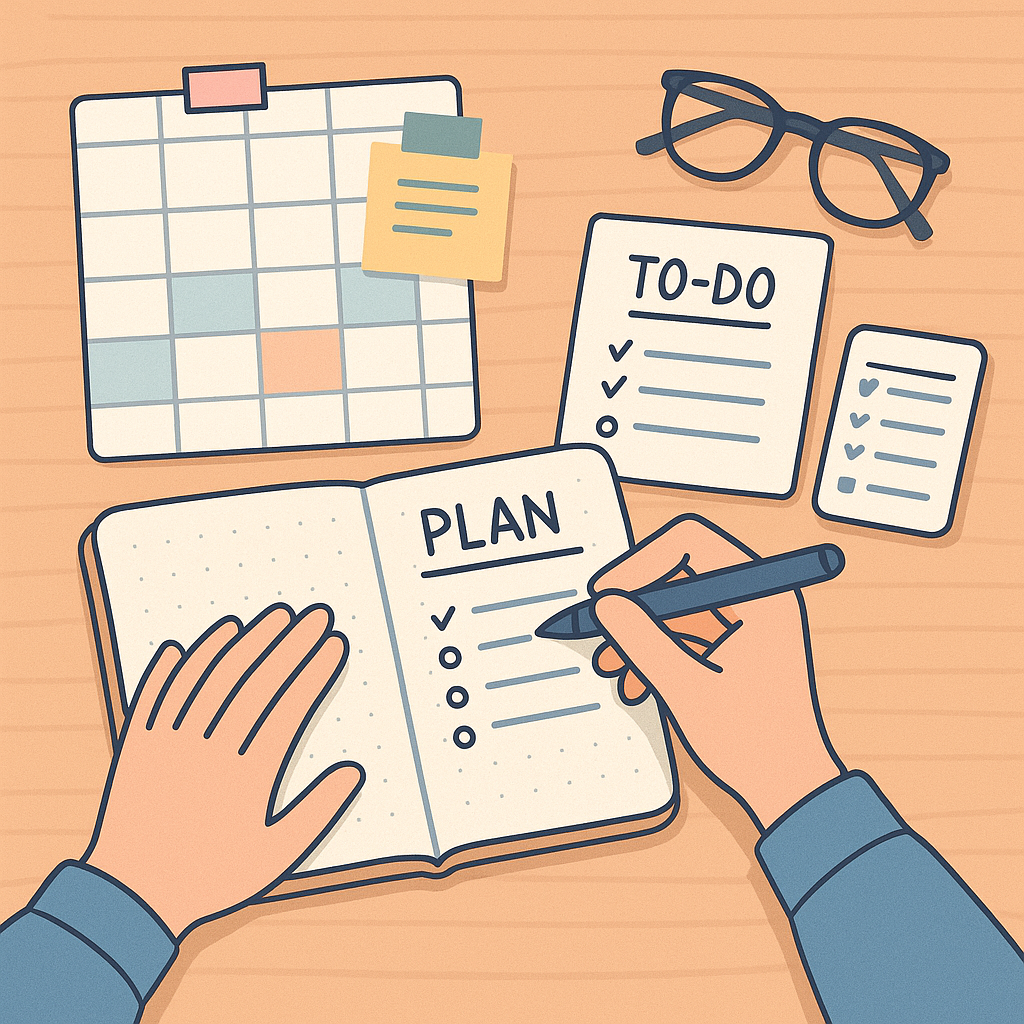
Effective planning ahead of time is a wise strategy to implement in your personal and professional life. Not only does it help you stay organized all day long, but it also ensures that you get the right things done at the right time.
There are many methods that you can try to help you plan out each day, week, or month. These approaches work differently for people, and it’s up to you to find one that suits you best. One great option is to use a time management app or tool. You can also try customizable calendars or personal organizers, notepads, bullet journals, to-do lists, or use a combination of these options.
Take a to-do list as an example. It helps give you a clear picture of what to expect and what needs to be accomplished at a given time, each day or week. Creating a to-do list doesn’t have to be a complicated process. You can take a few moments each night before you sleep to jot down a list of things to do so that you know where to resume or start work the next day.
2. Prioritize Tasks
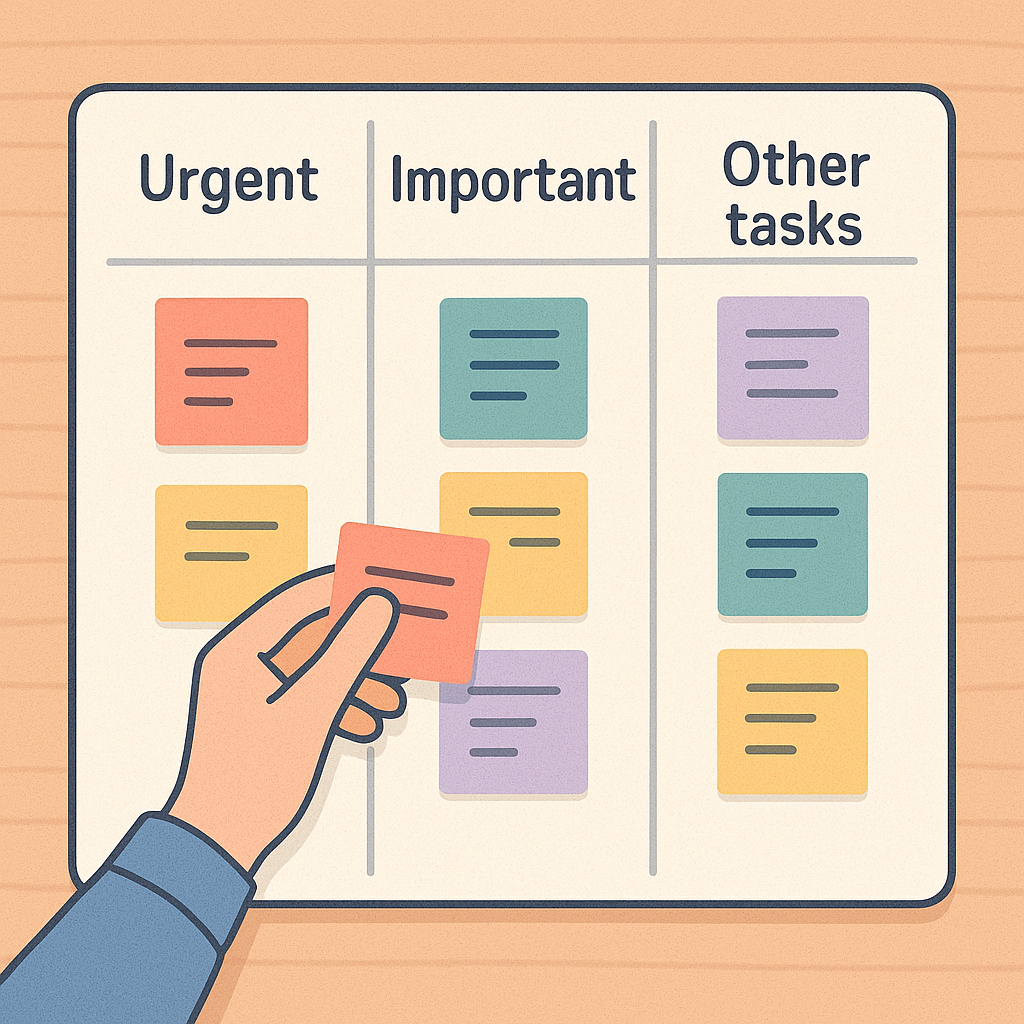
Another crucial time management strategy is to set clear priorities. Sometimes, when starting a project, you may have a long to-do list that makes work seem overwhelming. However, when you divide the project into smaller, manageable chunks, it becomes more manageable.
Even so, don’t stop at the list. You have to distinguish the urgent and important tasks on your list and prioritize them. This way, it becomes easier to spot tasks that require your attention, check if you’re on track, and accomplish tasks that are more urgent first.
3. Do Not Multitask
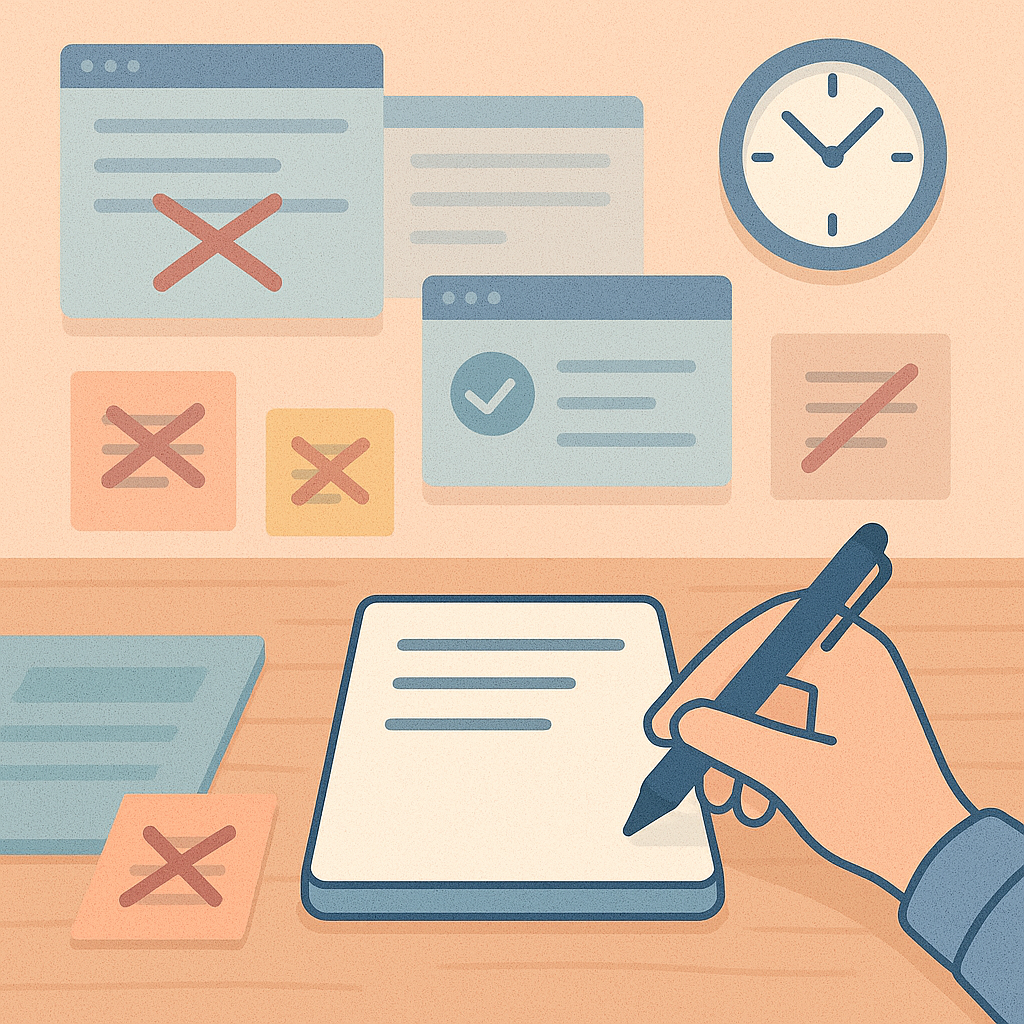
Despite what many people think, multitasking doesn’t help you get more things done. If anything, it’s the top productivity killer. When you multitask, all you’re doing is switching from one task to another, probably leaving most work unfinished.
In a business environment, multitasking can be ineffective and inefficient. According to research by the American Psychological Association, there’s a lag when switching between one task and another, which translates to time wastage and reduced productivity. The study shows that multitasking takes as much as 40 percent more time than if one focused on one task at a time.
To really understand whether multitasking is helping you or wasting your time, try single-tasking. Focus on one activity, task, or project at a time, and then switch to another once the specific tasks are accomplished. You’re likely to see a major difference in productivity, and you might end up saving time in the process.
Most importantly, try to implement the Pomodoro Technique that splits projects into shorter, 25-minute tasks, allowing you to take short breaks in between. This way, not only will your work be more manageable, but you’ll also avoid overworking yourself.
4. Set Aside Time for Emails

Understandably, you need to check and respond to your emails occasionally, a task that can be quite tedious. The thing is, you waste a lot of time checking emails—time that would otherwise be used to handle more pressing matters.
Unless your work responsibility is solely to check and reply to emails, you should practice limiting the time you spend on them. Schedule time during specific parts of the day for reading emails. Focus on this task within that set timeframe, and be sure to get most things done.
During this time, everything else is closed. After you’re done, or when the time for checking emails is up, turn off all email notifications or popups until it’s that task’s time again the next day.
To make the process even more efficient, consider using email management tools like Clean Email to automatically sort and declutter your inbox. This can help reduce decision fatigue and make those scheduled email sessions more productive.
5. Minimize Distractions and Interruptions
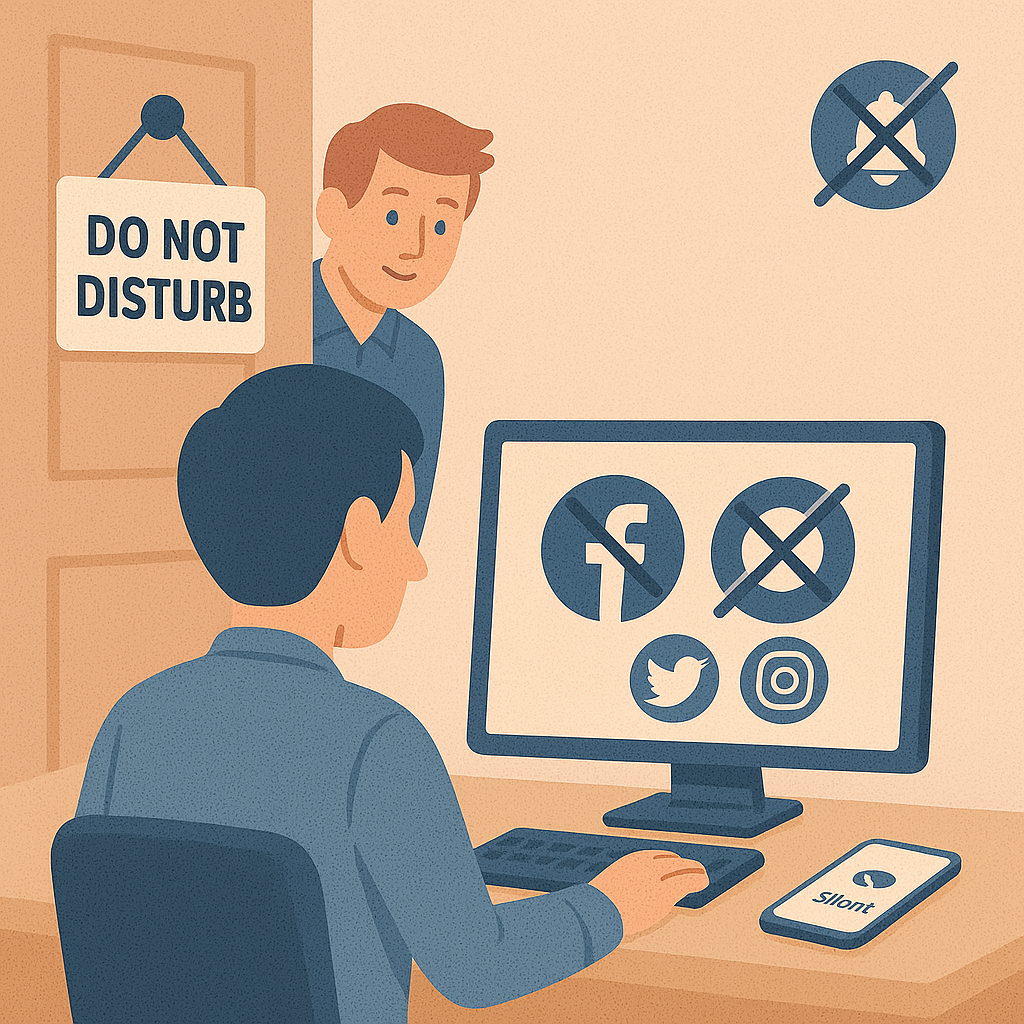
One of the most effective time management strategies is to avoid distractions while working. You only have a few hours to accomplish the goals of the day. So, try to minimize distractions and interruptions as much as possible to focus on important tasks.
Distractions can come in many forms, such as e-mails, using social media, a colleague dropping by for a chat, making phone calls, and other time wasters. Find a way to block these distractions and interruptions so you can stay focused on the tasks at hand.
You could try a time blocking method, where you commit a certain number of hours to just one task while blocking off time for other tasks. During this time, switch off or put your phone on silent, don’t answer unnecessary calls, turn off Facebook message popups, and let coworkers know that you’re not to be disturbed.
6. Determine Your Most Productive Times

We all have that time of the day when our productivity levels are at the peak and we have the most energy. If you’re a morning person, you can accomplish more work in the earlier parts of the day. So, organize your time so that you do urgent and important tasks first thing in the morning.
For the night owl, you know you’re slow to wake up and need some time to get in the mood for work. Push the most demanding tasks to the afternoon and do other light tasks in the mornings.
Use productivity tracker to know when you’re most awake, motivated, or alert. This way, you can work when you’re in your best mood and more energized. Take advantage of this time to accomplish most of the tasks on your to-do list.
7. Work with a Timer

Working with a timer is undeniably one of the most effective time management methods. A timer allows you to set time limits and reminds you to take breaks. In the process, you become more productive without feeling burned out.
The short breaks give you time to refresh your mind, and you can take this chance to get out of the office for a short walk, take a coffee break, or chat with colleagues. You’ll come back with renewed energy and able to work more efficiently.
A time tracker, for instance, ensures that you get alerts when it’s time to take a break. You also get alerts when you start working without turning on the timer. You can set the timer to notify you of the time tracked every hour so that you can keep track of hours worked. The total hours recorded will help you determine whether or not you’ll meet your targets and objectives.
Moreover, Traqq shows you which apps and websites take most of your time. This allows you to check if you spend your work hours efficiently or on non-work related issues. If you manage a team, Traqq makes it easy to check the activity levels of each team member so that you can coordinate them more effectively.
When you set a timer, you’re likely to push yourself to accomplish your tasks within that set amount of time, thereby boosting your productivity and tracking completed tasks.
8. Delegate Work Whenever Possible

Sometimes, you may have too much work that you feel overwhelmed. In a scenario where you can’t finish assignments or projects on time, it becomes necessary to outsource your work. If the deadline is too close, don’t overwork yourself. Instead, share your workload with team members to handle it as a team.
When delegating tasks to colleagues, make sure they are clearly defined so that everyone knows what tasks they are handling.
9. Work with Goals
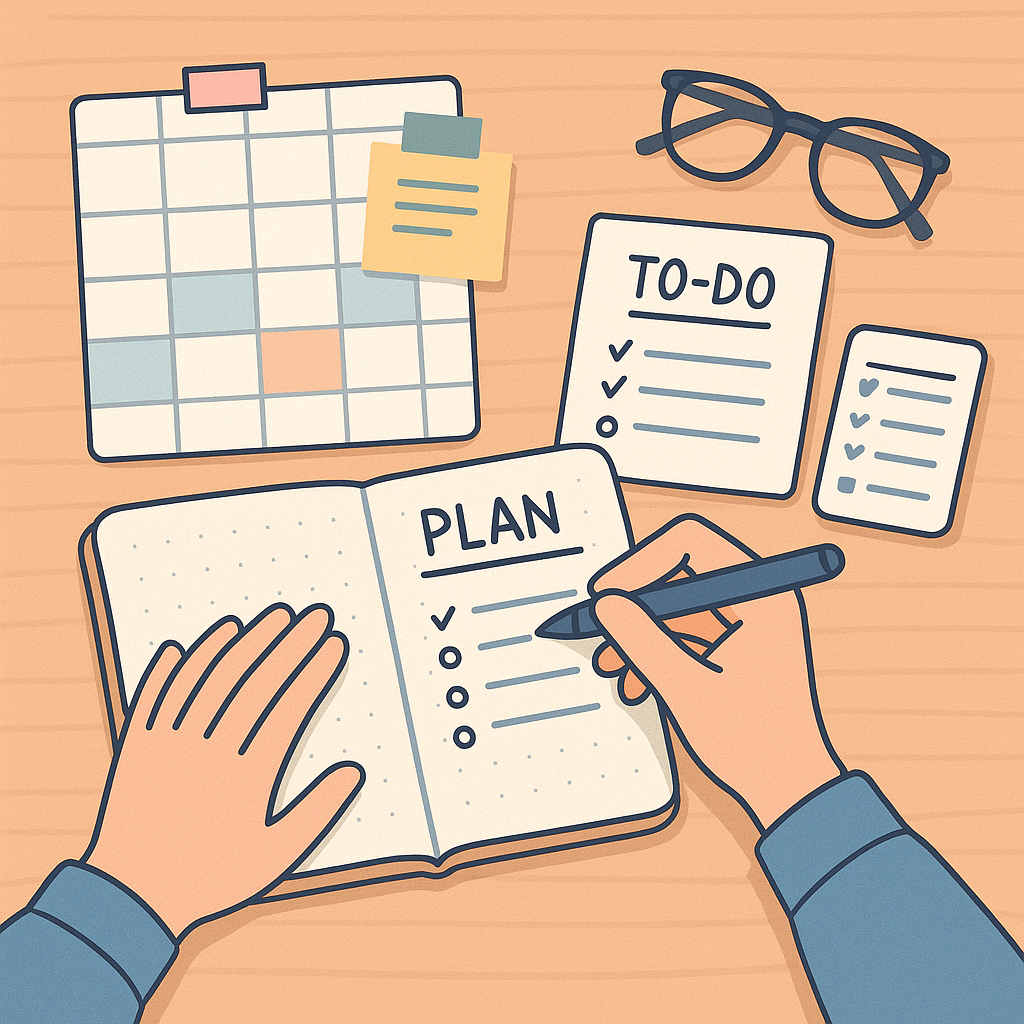
Working without goals is like going on a trip with no destination. Goals help to set you in the right direction and form an essential part of time management. Goals allow you to break large projects into smaller, manageable tasks.
Whether you’re a project manager, a team leader, a business owner, or an employee, setting goals positions you on the right path to success. You’ll learn to make decisions that influence positive results, get more things done within the required time, work more effectively, and become more productive.
10. Maintain a Routine

What’s that thing you do every morning after waking up? Is it going for a jog, cycling, taking breakfast, or checking social media? When you know the most productive time of your day, and you have created your goals, it’s essential to maintain a structure that helps you accomplish your daily tasks in time.
At first, you may find the process complicated. However, with time and practice, it becomes easier for you to stick to a routine that makes you more efficient and productive in completing routine tasks.
11. Adjust Your Schedule
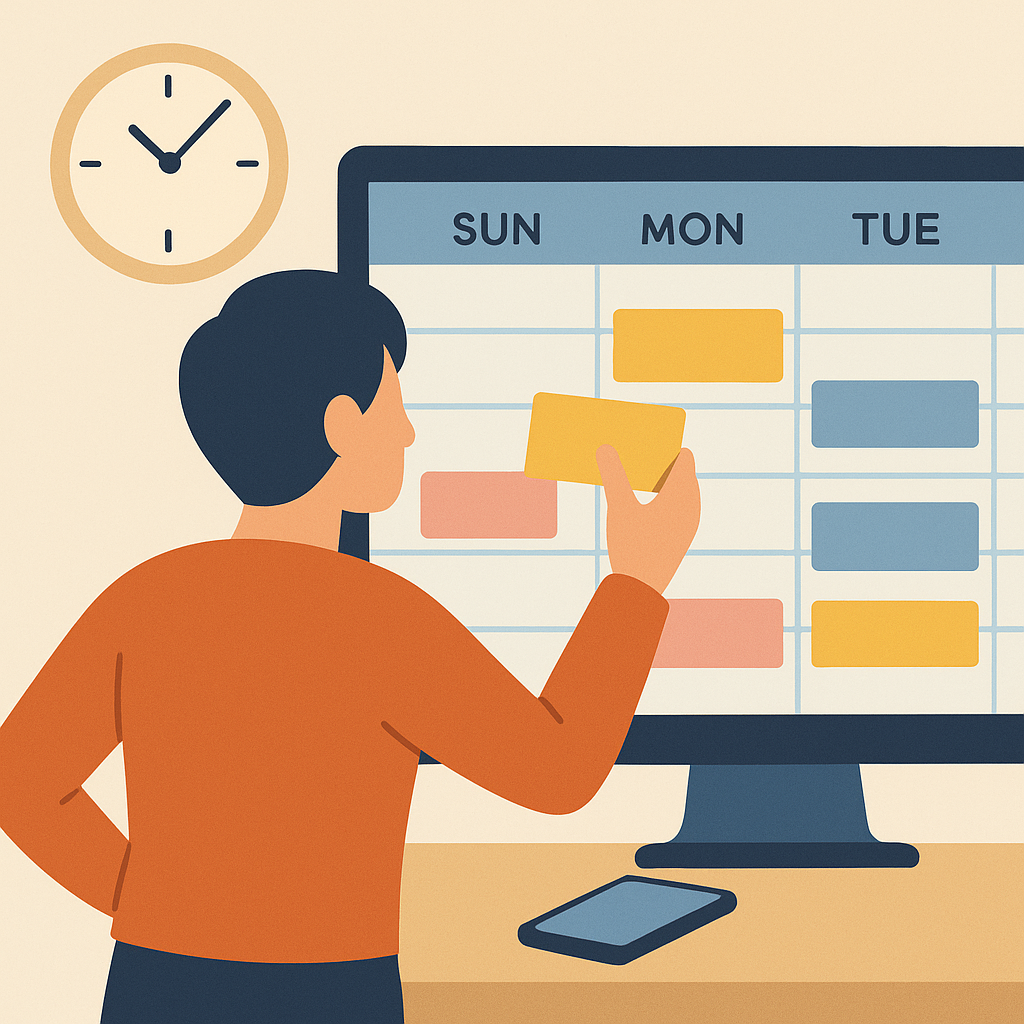
We all work in different ways, and one strategy that works for your colleague or friend may not work for you. If you’ve tried certain time management techniques and they don’t seem to work in your favor, learn to be flexible and change your schedule.
Let’s say waking up at 6:30 am and starting the day by checking emails end up wasting most of your morning hours. In this case, consider shifting the task of reading emails to the afternoon or evenings. The point is to find a schedule that suits you perfectly, so that you always have enough time to accomplish most of your daily or weekly urgent tasks.
12. Just Say “No”

Understandably, you don’t want to upset your colleagues or boss. However, saying ‘no’ can help you save time you had already set aside to work on your projects. You may have your plate full, but your supervisor still wants to delegate a few tasks to you. If you don’t learn to say no, you can easily end up being overworked and stressed.
Saying no can be tricky since you don’t want to be seen as the one who refuses work. However, you can politely explain why you’ll not take on any additional tasks or ask if it can be postponed to a later date. Let them know that re-scheduling the new responsibilities will enable you to finish the current assignments and then embark on those other projects.
Managing Personal Time
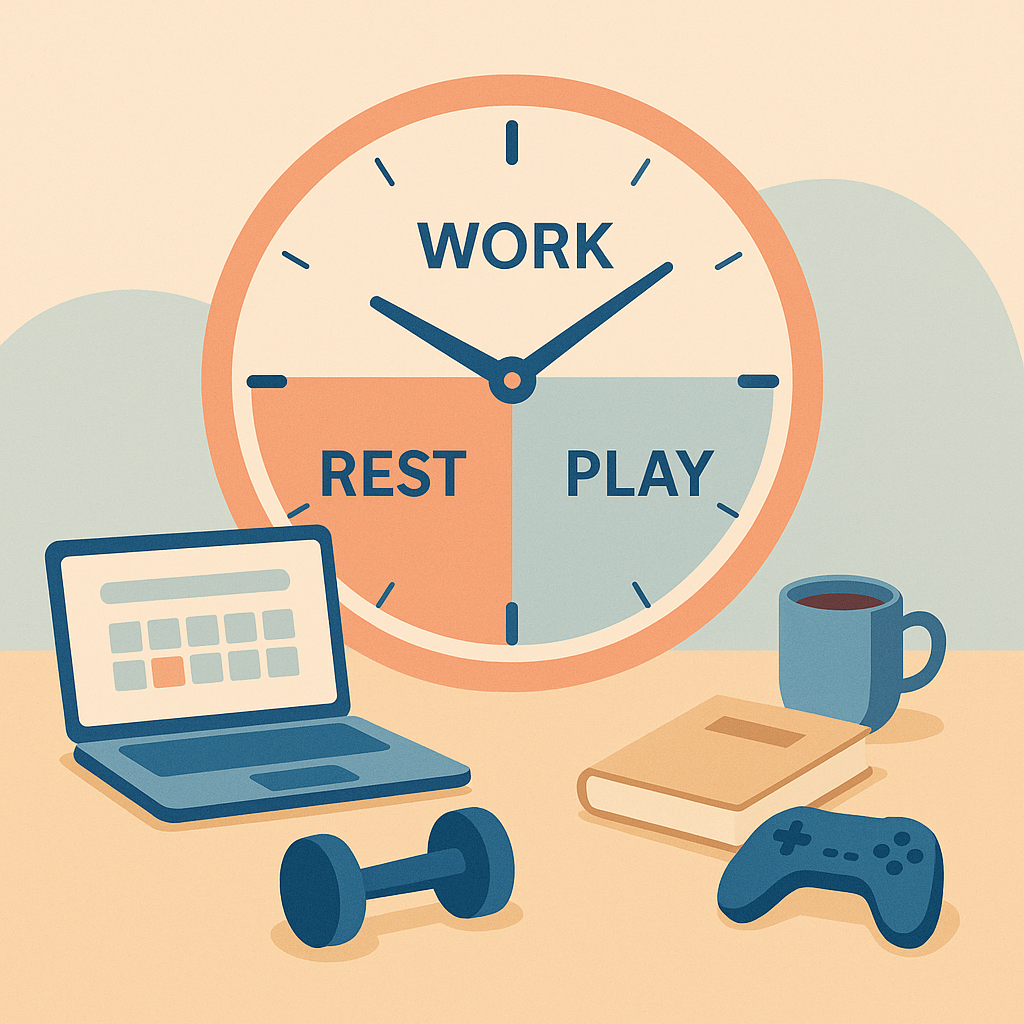
Personal time management is essential for achieving success in all areas of life. It involves prioritizing tasks, setting goals, and creating a schedule that allows for a balance between work, rest, and play. By managing personal time effectively, individuals can reduce stress, increase productivity, and improve their mental and physical health.
To manage your personal time effectively, start by identifying your most important tasks and setting clear goals. Create a daily schedule that includes time for work, exercise, relaxation, and social activities. Use tools like to-do lists, calendar apps, and project management software to stay organized and keep track of your progress. By prioritizing tasks and avoiding distractions, you can make the most of your personal time and achieve a healthy work-life balance.
Understanding the Importance of Personal Time
Personal time is essential for rejuvenation, relaxation, and self-reflection. It allows individuals to recharge, refocus, and prioritize their tasks and goals. By understanding the importance of personal time, individuals can create a schedule that includes time for self-care, exercise, and leisure activities, leading to a more balanced and fulfilling life. Effective time management techniques, such as the Pomodoro technique, time blocking, and the Rapid Planning Method (RPM), can help individuals manage their time more efficiently and make the most of their personal time.
To manage personal time effectively, individuals can use various time management strategies, such as creating a to-do list, prioritizing tasks, and avoiding distractions. They can also use productivity tools, such as calendar apps and project management software like Traqq to stay organized and focused. By staying ahead of deadlines, avoiding procrastination, and taking regular breaks, individuals can maintain a healthy work-life balance and achieve their goals.
Additionally, individuals can use techniques like the Pickle Jar Theory, which involves categorizing tasks into rocks, pebbles, and sand, to prioritize their tasks and manage their time more effectively. They can also use the concept of time blocks to schedule their tasks and avoid multitasking, which can help reduce stress and increase productivity.
By mastering time management and prioritizing personal time, individuals can improve their mental wellbeing, reduce stress, and increase their overall sense of fulfillment. They can also create a schedule that allows for deep work, exercise, and leisure activities, leading to a more balanced and healthy lifestyle. Effective time management is a skill that can be learned and mastered with practice, and it is essential for achieving success in all areas of life.
It is also important to note that time management skills, such as prioritizing tasks, managing time, and avoiding distractions, are essential for achieving goals and maintaining a healthy work-life balance. By using effective time management techniques, such as the Eisenhower Matrix, the Getting Things Done (GTD) method, and the Kanban technique, individuals can stay focused, avoid procrastination, and achieve their goals.
In Conclusion…
Understanding the importance of time management and personal time is crucial for achieving success and maintaining a healthy work-life balance. By using effective time management strategies and techniques, individuals can prioritize their tasks, manage their time more efficiently, and achieve their goals. Whether it’s using the Pomodoro technique, time blocking, or the Rapid Planning Method (RPM), individuals can find a time management strategy that works for them and helps them stay focused, productive, and fulfilled.
Finally, find the appropriate tool, such as a calendar app, to back up your time management techniques. This can be a time tracker or a project management system that allows you to schedule work and track your progress. If you manage geographically distributed teams, an employee monitoring software enables you to review the performance levels of each worker, assign tasks, and set deadlines.

